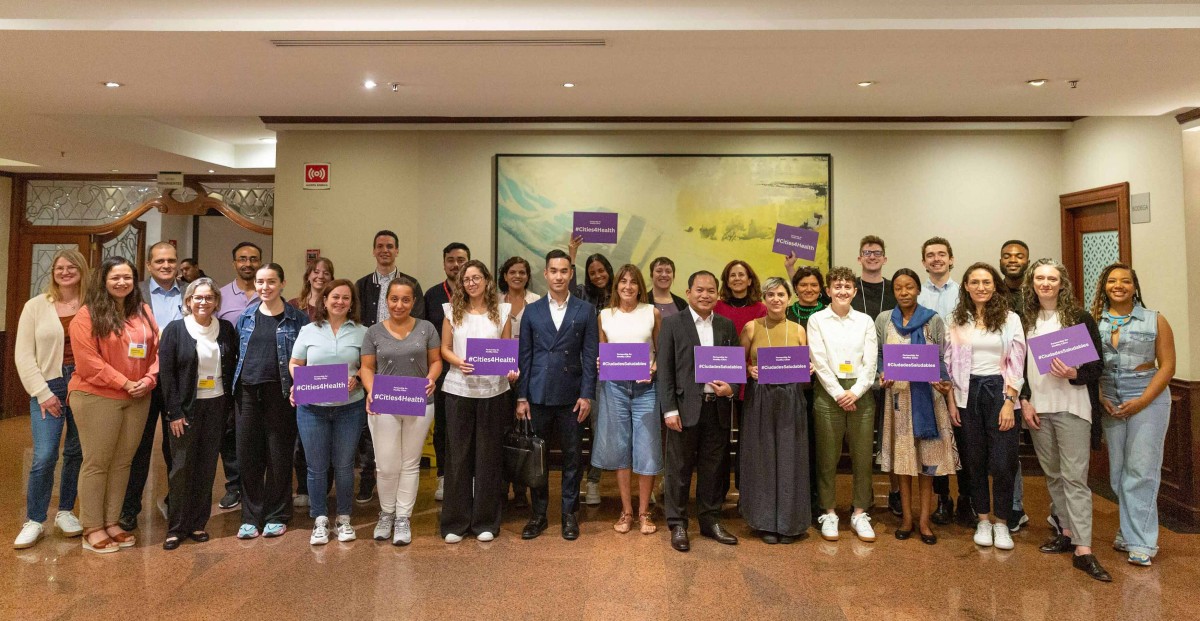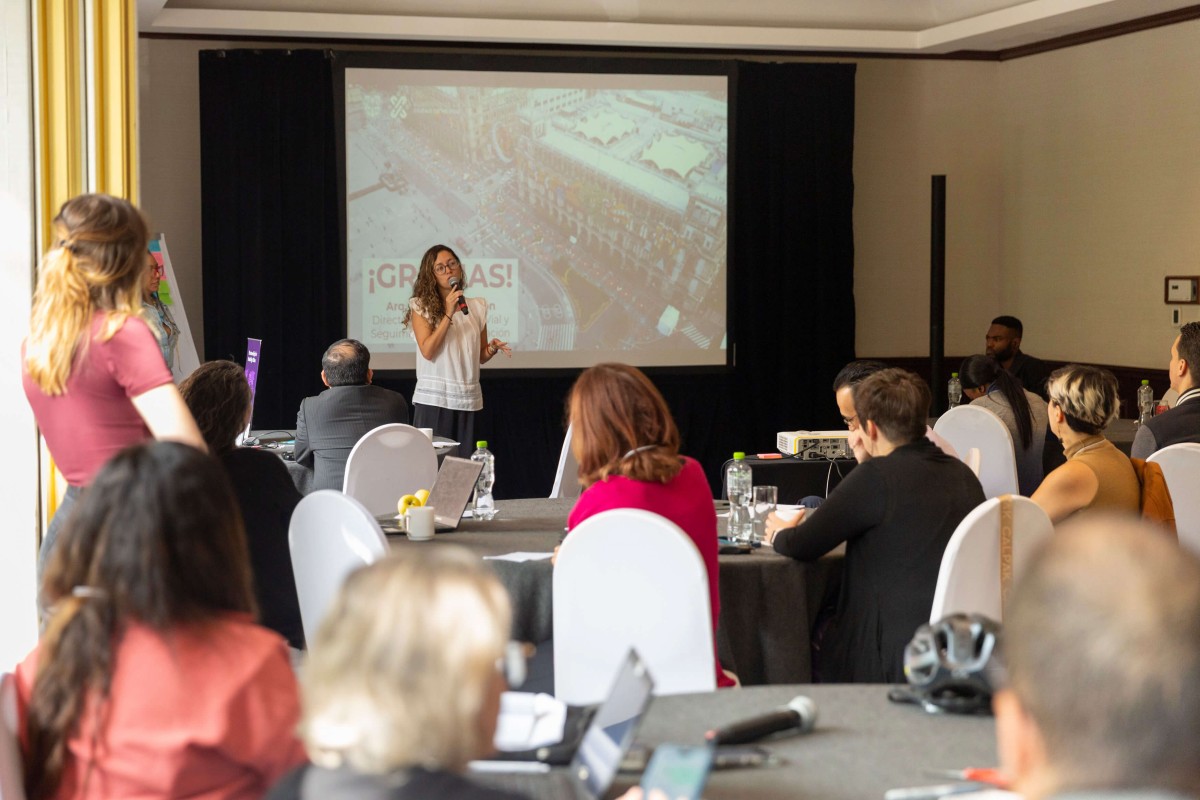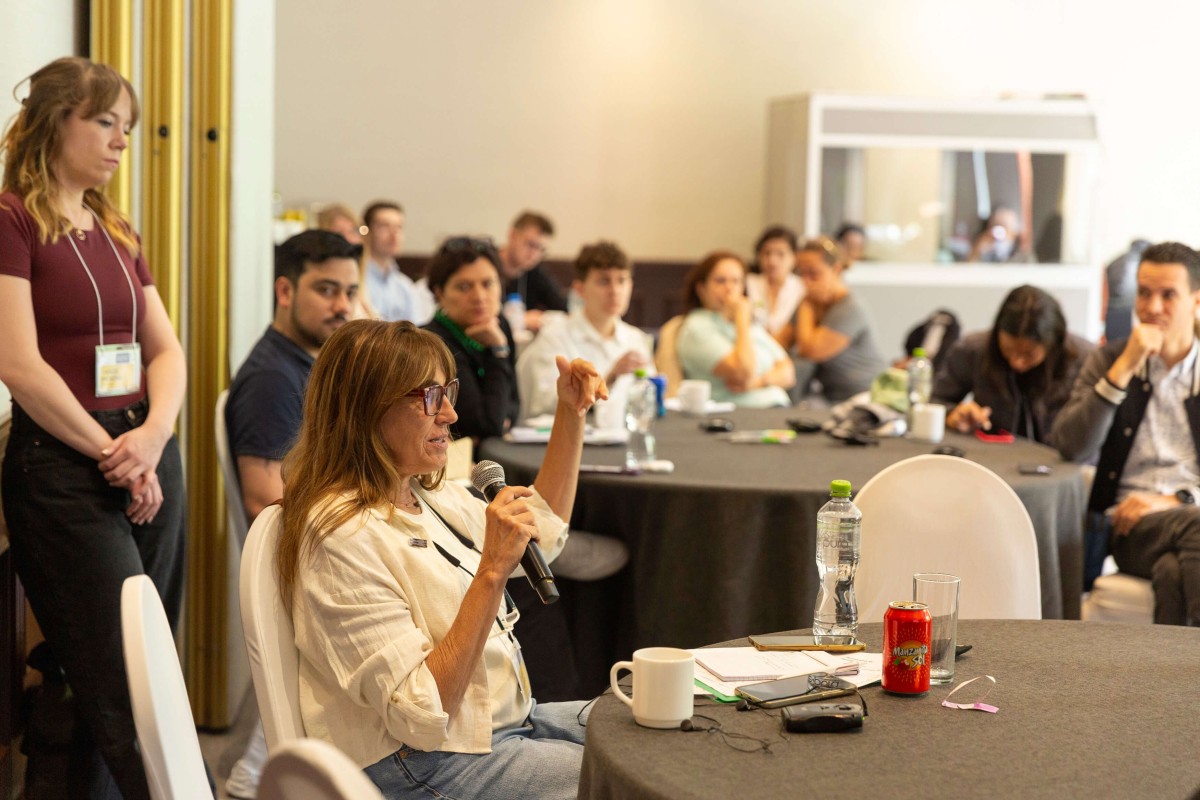
On 17-19 September, the Data Insights for Active Travel team joined twelve cities from around the world in Mexico City to participate in the workshop ‘Transforming Urban Mobility and Road Safety through a Public Health Lens’, an initiative led by the Partnership for Healthy Cities network. The event centred on peer-to-peer learning and highlighted urban strategies for using data to improve public health policies, as well as processes for developing and implementing effective road safety and mobility policies and practices at the local level.
Dublin City was represented by Jack Kavanagh (Smart Dublin Open Data Lead) and Jack Lehane (Smart D8 Ecosystem Manager and ADAPT Research Fellow). They participated in the Data Use and Public Health Policymaking session, where they presented the latest developments on behalf of the city’s Data Insights for Active Travel project team. The pair shared information on pioneering partnerships with regional and national cross-sectoral actors, identifying indicators and outcomes, and the ongoing evaluation of existing and proposed data sources for mobility insights. They also demonstrated the new Dublin Region Active Travel dashboard prototype, which captures and collates urban mobility data to provide environmental and health insights.
On the sidelines of the event, Jack Kavanagh told organizers: “We’re trying a number of new technologies [as part of this project] in two Active Travel Schemes. One of the technologies is “VivaCity”…camera sensors that use AI technology to detect things like modal split and near-miss collisions. On one of the routes of this project we’re going to use these AI camera sensors to see how pedestrians are interacting with new infrastructure like continuous footpaths and bus islands.”

This data will be used to measure the usage of the two schemes and asses the interaction of pedestrians, cyclists and vehicles in new types of infrastructure. This data, together with existing data and new data streams from the rest technologies tested during the project, will provide a detailed picture of Active Travel in Dublin, which was not available before.
Cities at the workshop included Boston, Buenos Aires, Dublin, Guadalajara, Istanbul, León, Lusaka, Mexico City (hosts), Philadelphia, Phnom Penh, Santiago and Santo Domingo. Delegates were joined by representatives from global health organization Vital Strategies, and the World Bank.
The Data Insights for Active Travel project
Dublin City Council’s Active Travel Programme Office and Smart City Teams launched the Data Insights for Active Travel project in March 2024 pilot new technologies that measure and evaluate the impact of the city’s active travel investments. This initiative connects public sector partners to enhance understanding of active travel patterns in the city. The new data will inform future infrastructure planning and investment to improve safe and inclusive active travel options.
The project is part of Dublin’s work with the Partnership for Healthy Cities, a global network of over 74 cities committed to saving lives by preventing non-communicable diseases (NCDs) and injuries. Supported by Bloo mberg Philanthropies in partnership with the World Health Organization and Vital Strategies, the initiative enables cities around the world to deliver a high-impact policy or programmatic intervention to reduce NCDs and injuries in their communities. Other key partners for Data Insights for Active Travel project include the National Transport Authority (NTA) and ADAPT, the world-leading SFI Research Centre for AI-Driven Digital Content Technology hosted by Trinity College Dublin.
mberg Philanthropies in partnership with the World Health Organization and Vital Strategies, the initiative enables cities around the world to deliver a high-impact policy or programmatic intervention to reduce NCDs and injuries in their communities. Other key partners for Data Insights for Active Travel project include the National Transport Authority (NTA) and ADAPT, the world-leading SFI Research Centre for AI-Driven Digital Content Technology hosted by Trinity College Dublin.
For information on Data Insights for Active Travel project, please visit the project page.